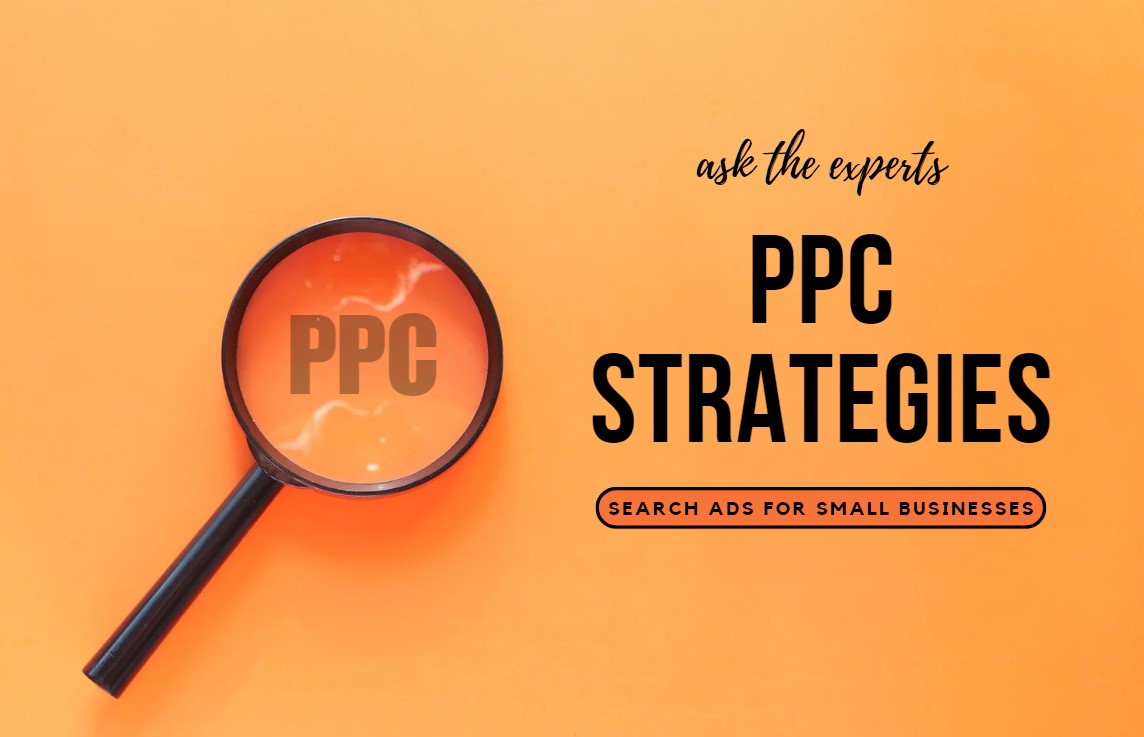In our ongoing ask-the-expert series, we asked a group of select marketers that use PPC effectively to share their thoughts on best practices. Here are some tips from those on the front lines.
When it comes to PPC, what strategies have you found to be effective?
Tightly Focus Audience Segments
“One of my clients provides business intelligence data to mid-size organizations but their PPC campaign on Google Ads was mostly delivering leads that were too small for their service,” said David Richter, Founder at ClickPop.
To improve the targeting of their ad campaigns Richter created an audience segment based on the demographics of the searcher, in particular the company size that the searcher is believed to be employed by. Google Ads provides three brackets of employer size, small (1 to 249 employees), medium (250 to 10k employees), and large (Greater than 10k employees).
“For this particular client we selected the medium bracket which, while still broad, has prevented ad spend for very small businesses and has reduced their cost per marketing qualified lead by over 65%,” he said.
Use Negative Keywords
One specific technique that is effective for small businesses using Google pay-per-click (PPC) advertising is the utilization of negative keywords, recommends Kelly Chan, Accountant Online.
Negative keywords are terms or phrases that are excluded from a PPC campaign, preventing the ad from being shown to irrelevant or uninterested audiences.
“Using negative keywords might help small businesses in increasing the relevancy and quality of their PPC ads,” said Chan. “Google rewards advertisers who provide relevant and useful content to their users, this can lead to higher ad ranks and better ad positions.”
Use Offline Conversion Actions
“To improve the efficiency of your bidding strategy and get the algorithm working more efficiently, consider uploading offline ‘conversion’ actions with real value to your business,” said Alex Goldberg, Founder at Fin vs Fin.
Such conversions might include:
- In-person meetings or visits
- In-store sales or appointments
- Any other activity your customers perform off of your website that contributes to your bottom line
Customize with Dynamic Content
Ad customizers allow you to create ads that are more personalized and relevant to your target audience.
“You can use ad customizers to dynamically insert specific details, such as prices or locations, into your ad copy based on the user’s search query,” said Paul Dughi, CEO at Stronger Content. “This can improve your ad’s relevance and click-through rate.”
Get Expert Help
“As CEO of an 18-year-old digital marketing firm, I find that small businesses with a limited budget are better off not following most of Google’s suggestions within Google Ads,” said Jon C Coward, CEO at 7 Sided Cube.
“Ultimately these suggestions are designed to create campaigns that may be profitable, but run beyond the limited budget of most SMBs.”
Optimize for Calls
“As an attorney and a business owner in general, it is difficult to get people on the phone. One of the tools we use to drive phone calls to our business is Google Ads optimized for calls,” said Derek Jacques, Attorney at The Mitten Law Firm.
“We have been doing this for the past year, and it has resulted in driving 30-50 new calls to our practice a month. The vast majority of these calls turn into clients for various legal services at a cost of about $35 per call. When the average revenue from any of these calls being well over $1,000, it is a cost-effective way to get clients into our practice.”
Don’t Forget to Craft a Seamless Landing Page
Chris Ferris, VP of Digital Strategy at Pierpont Communications, reminds us not forget about the landing page. “
“Have a relevant working landing page where the user can easily send you their information or make a purchase; it’s important for the user experience to be as seamless as possible from the moment they click on the ad to the exit page,” said Ferris.
Continually Monitor and Modify
Often, businesses take a set-it-and-forget-it attitude towards PPC. You should always be testing and that includes bid strategies.
Jeff Mains, CEO of Champion Leadership Group reminds us we need to constantly monitor and measure what we’re doing. “It is essential to monitor the PPC campaign continually and make necessary adjustments such as modifying ad content, bids, and targeting options,” said Mains.
“Utilizing different bid strategies can help optimize your bids for your desired outcome, whether it’s clicks, conversions, or impressions,” said James Berger, foudner at Refresh Public Relations. “For example, if you want to maximize clicks, you can use the manual CPC bid strategy to set your bids based on the maximum amount you’re willing to pay per click.”

